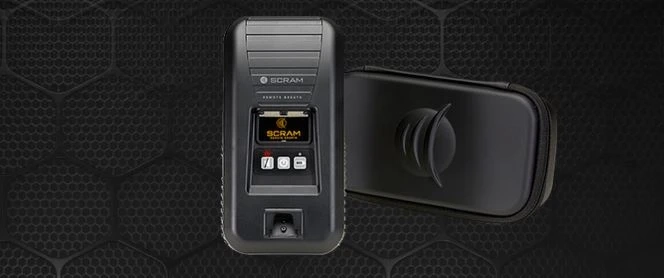Offender monitoring services play a crucial role in Michigan’s criminal justice system. These services help law enforcement, courts, and parole officers ensure that individuals released into the community — whether on parole, probation, or pretrial release — are complying with the conditions set by the court.
This guide provides a comprehensive look at how offender monitoring works in Michigan, what types of monitoring are available, key legal frameworks, and the role of private providers like EMS Tether, a leading name in the state’s monitoring solutions.
1. What is Offender Monitoring?
Offender monitoring involves the use of electronic devices to supervise individuals who have been ordered by the court to follow specific restrictions. This could include staying within certain boundaries, abstaining from alcohol, or remaining at home during designated hours.
Rather than placing individuals in jail or prison, monitoring allows for supervised freedom — enabling people to maintain employment, attend treatment, and remain with their families, while still being held accountable.
2. Legal Framework in Michigan
Michigan has specific laws governing offender monitoring. One of the most well-known statutes is MCL 791.285, which established the Lifetime Electronic Monitoring Program. This law applies primarily to individuals convicted of serious sexual offenses, especially those involving minors, and requires them to be monitored for life using GPS technology.
Other laws, like MCL 771.3e, allow courts to order GPS monitoring for felony offenders released to attend school or work. Additionally, anyone who tampers with or disables a court-ordered monitoring device can face felony charges, with penalties including up to two years in prison.
3. Types of Offender Monitoring in Michigan
Michigan uses several types of monitoring systems, depending on the offender's risk level and the nature of the offense.
GPS Monitoring is the most common form. It tracks an individual’s location in real time and can enforce geographic boundaries (called “geofencing”). Courts use this for sex offenders, domestic violence cases, and individuals with restraining orders.
Curfew or House Arrest Monitoring ensures that individuals remain at home during specific hours. It is often used for lower-risk offenders or as an alternative to jail time.
Alcohol Monitoring is used for individuals with alcohol-related offenses, like DUI or domestic violence cases involving alcohol abuse. Devices such as transdermal bracelets or portable breathalyzers can detect alcohol in the system continuously or at scheduled times.
Remote Breath Testing devices allow individuals to submit a breath sample from anywhere, often using facial recognition and GPS to verify identity and location.
4. Costs, Violations, and Enforcement
Many offenders are required to pay for the cost of their monitoring devices. This can include installation fees, daily monitoring charges, and maintenance. For those on lifetime monitoring, Michigan law allows the state to charge up to $60 per month once the individual has completed parole but remains under supervision.
Violating monitoring rules — whether by breaking curfew, entering restricted zones, or removing the device — can lead to serious consequences. These include revocation of parole or probation, new charges, or incarceration.
5. Benefits and Challenges of Monitoring
Offender monitoring brings several benefits. It reduces jail overcrowding, lowers taxpayer costs, and gives individuals a chance to maintain stability while serving their sentence in the community. It also enhances public safety by ensuring that high-risk individuals are under constant supervision.
However, challenges remain. False alerts, technical glitches, and inconsistent GPS coverage can cause complications. There's also concern over the financial burden placed on low-income offenders, who may struggle to afford the monthly fees.
That said, when used properly and with the right support systems, monitoring can be a powerful tool for rehabilitation and public safety.
6. EMS Tether: A Leading Provider in Michigan
One of the top private providers offering offender monitoring services in Michigan is EMS Tether. They provide a full range of monitoring solutions that align with court and corrections requirements across the state.
EMS Tether offers:
- GPS tracking bracelets for real-time location monitoring, ideal for high-risk cases and court-mandated supervision.
- Continuous alcohol monitoring devices, including transdermal sensors that detect alcohol through perspiration.
- Portable breath alcohol testing units, which use GPS and facial recognition to verify identity and compliance.
- Home confinement and curfew enforcement tools, allowing courts to track whether individuals are meeting their obligations without the need for incarceration.
EMS Tether stands out for combining advanced technology with flexible monitoring programs. Their cloud-based system ensures quick alerts, detailed reporting, and streamlined case management — all essential for effective supervision.
7. Conclusion
Offender monitoring in Michigan is a critical part of the state's approach to modern corrections. With laws in place to support GPS tracking, alcohol monitoring, and house arrest, the system aims to strike a balance between accountability and rehabilitation.
As a leading provider, EMS Tether offers the technology and flexibility to meet these goals. Whether it's through GPS bracelets or portable alcohol testing units, EMS Tether supports courts, probation officers, and communities in maintaining safe, efficient monitoring programs across Michigan.
If you or someone you know is required to undergo monitoring, it's essential to understand the legal obligations, available support, and how companies like EMS Tether can help navigate the process.



